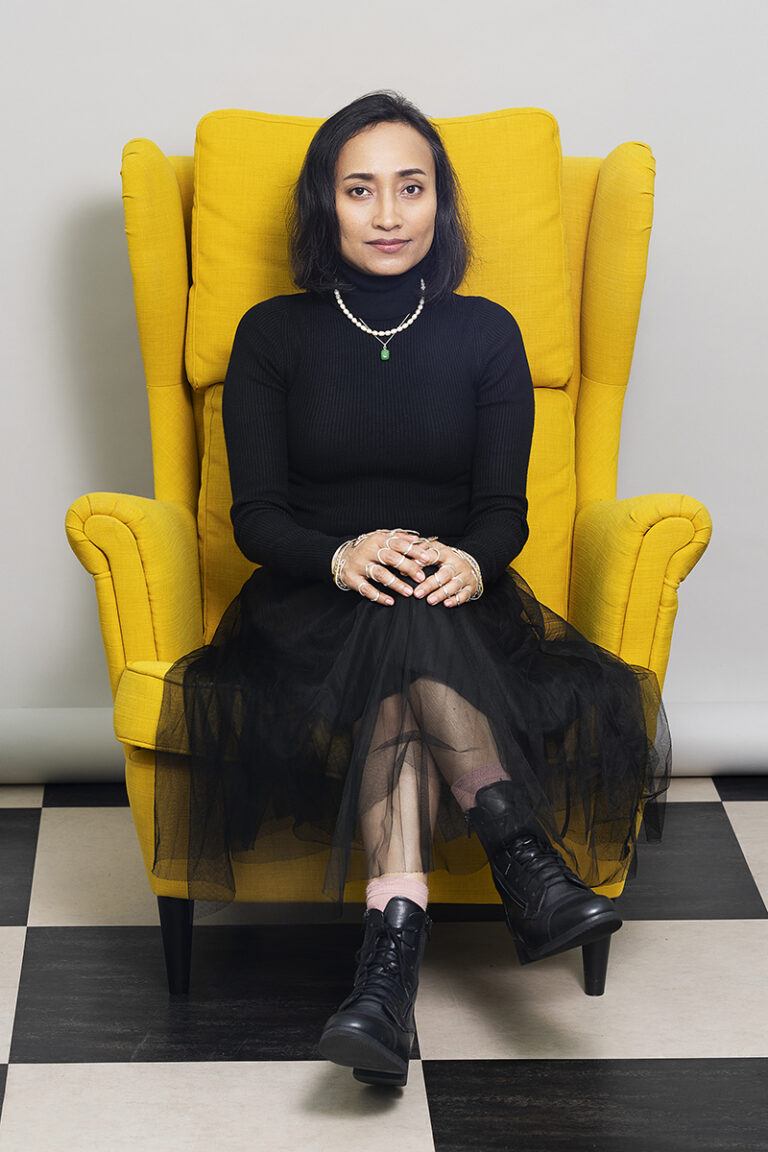When VU asked social scientist Tamara Soukotta to teach a course on development and globalisation with a focus on decolonisation, she agreed, provided she could actually use decolonised teaching methods. “I’ve noticed that decolonisation is often taught as a concept, but that this whole system that was produced by colonisation is still maintained. A lot of universities say they want to decolonise, but they don’t realise that total decolonisation would mean that the university itself would cease to exist.”
Major transformation
To her surprise, VU agreed to her approach – until they clashed over the way she marked her students. Instead of having them sit an exam, she asked them to reflect on what they had learned during the course in a take-home essay. “Decolonisation can be disruptive. Privileged students suddenly felt that poverty, racism and discrimination weren’t just concepts, but the lived experiences of their peers. They noticed that fellow students who didn’t participate in class discussions in other courses suddenly did speak up, and the course evaluations show that they came to the realisation that it’s sometimes better to listen than to talk. That’s a major transformation.” Incidentally, students gave the course a 4.9 out of 5 in the course evaluations.
In a written response, the head of the Social and Cultural Anthropology Department has informed Ad Valvas that ‘in the interest of the students’ the decision was taken to ‘relieve Soukotta of her supervisory duties’ pending a discussion on the assessment guidelines. Because Soukotta was not allowed to mark her students, they had to wait a long time for the marks on their research proposals. Soukotta told them they could file a complaint, which they did in a joint letter. According to Soukotta, this led the director of studies to conclude that she wasn’t doing her job, after which she was suspended. Given the ongoing dispute with the university, she doesn’t want to say much more so as not to affect the outcome of the proceedings. The department head’s statement notes that Soukotta has not been suspended, but rather relieved of her duties.
Self-censorship
As one of the speakers at a meeting on decolonising education held last March, Soukotta also pointed out that decolonisation comes at a cost. “In this case, it’s a suspension.” Still, she says she feels free to teach her courses as she sees fit. At the same time, she does realise that others don’t always have this freedom. “Not everyone can afford to face those consequences. Sometimes we censor ourselves to secure our jobs.”
Moreover, academics are often still expected to have a certain number of publications to their name if they want to be seen as established researchers. This can encourage self-censorship, according to research commissioned by the Dutch House of Representatives. This proved especially problematic in the medical community during the pandemic, when researchers censored or did not publish undesirable results.
Taking a stronger stance
According to Soukotta, not all research topics are equally popular. The climate crisis, for example, is seen as a more palatable subject than the situation in Gaza. She says this is also reflected in VU policy. “They aren’t speaking out about the situation in Gaza while taking a clear stand against climate change – as long as we don’t jeopardise their source of funding.”
Would the university taking a stronger stance make it easier for students and staff to speak out? “Yes, but it’s also about political will. Universities aren’t neutral producers of knowledge – it’s always political. They receive funding, which means they can’t rock the boat too much. I don’t think they’re necessarily concerned with the right or duty to acquire knowledge that can change society. They’re more worried about protecting their own image. They say they want to decolonise, but instead of tearing down the whole building and starting from scratch, they’re just changing what’s in the shop window. The Anthropology Department posted my photo and quote on their Instagram to show that they’re not colonial, but then they made it difficult for me to do my job and eventually sent me away.”
So is there enough room for activism in academia? “I wouldn’t make a distinction between activism and academia”, Soukotta says. “Activism is a principle: you dedicate yourself to making a difference. My way of doing that is through academia, but you can also make a difference in small ways. For me, activism is what I teach my students – it means actually using the word ‘race’ in the title of my research project, even though that’s something people tend to avoid.”
